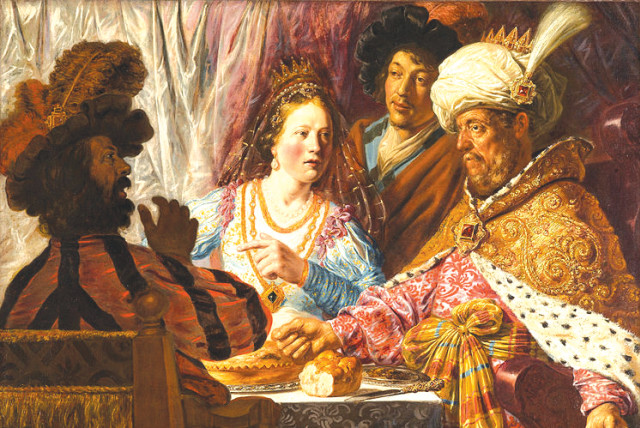What Israel’s government can learn from Purim's Queen Esther's victory - opinion

We need leadership that will not leave anyone behind, resist despair and take a proactive initiative in a series of actions instead of forced reactivity.
At a superficial glance, it is possible to see in Queen Esther, a certain resemblance to our current leadership: someone who does not do too much, and the main essence and role of her is to be beautiful, keep quiet, and please those around her according to the interests dictated to her. Like any fairy tale of princesses, she is portrayed as a good girl who is the town's flower. This obedient orphan does what her uncle Mordecai tells her: a beauty dressed in a luxurious dress, studded with jewels, and wearing a crown.
But as they say on Purim, venahafochu (and vice versa). In the megillah, Esther transforms from a magical princess into an exemplary leader, the kind we would want for ourselves, one that leads to an actual reversal of historical events. Esther shows us all what to do in the face of corruption and bad decision-making based on inappropriate considerations.
She fulfills her duty to oppose this and takes herself the responsibility of creating change. While most people despairingly accept the expected events as fate—as many of us do even today—Esther does not sink into despair. For her, despair is not a work plan; she has her own plan.
Apparently, she is acting at Mordechai's request, but the initiative, planning, and execution are hers alone.
During three days of fasting (yes, only three days, as opposed to 165 and counting), Esther formulates a strategy to save the people and prepares for its implementation. Failure is not an option at all.
She "wears royalty"—she covers fear with courage and replaces obedience with initiative. Already 2,000 years ago, she took on the position of the decision-maker, the same position that women are absent from today.
With the audacity of a female combat tank soldier risking her life, she turns to the king herself. She does this because she understands that he is an important ally who can act in her favor and in the interest of realizing her goals.
Her behavior may seem strange today when no one is willing to risk even their coalition for the sake of allies or the people's goals, but not Esther. She understood how to handle an ally and how to harness him.
She makes a feast for him and knows how to talk and please her ally. Then she hosts another feast to which she invites their enemy - Haman - and speaks with him, too.
Even when Esther is silent, a custom that some of our chosen officials should adopt, her silence is like that of a secret agent. Paraphrasing the slogan of the Mossad, Esther plays war tricks (which brings down Haman) and rescues (the entire nation).
Esther does all this alone and is successful, thanks to her unique point of view, which is reflected at every level—security, tactical, and strategic—and yes, gender-based, too. However, femininity is not her most dominant characteristic; instead, it is her main tool, along with her original thinking, determination, and dedication.
Heroes like Esther
In recent months, we have met many heroes like her who were ready to give their lives for their people. Esther also gave up her life in a certain sense when she remained to live as the wife of Ahasuerus.
However, she did not give up on perpetuating her story and message and wrote them for all future generations, including ours. Her story is worthy of our focus because the points of similarity are more than coincidental.
Esther is also one of the Bible's seven prophetesses of the people of Israel. I hope that her behavior can predict, or at least inspire, the way in which we, too, will reach the absolute victory that will be ours: with a leadership that knows how to harness an ally to our side, that will care with devotion for the entire nation and not for itself, and who will want not to defeat us but with us.
We need leadership that will not leave anyone behind, resist despair and take a proactive initiative in a series of actions instead of forced reactivity, and a decision-making table that brings a different and long-term strategic perspective.
Our destiny is in our hands, and we can and should change it, just like Esther.
Jerusalem Post Store
`; document.getElementById("linkPremium").innerHTML = cont; var divWithLink = document.getElementById("premium-link"); if (divWithLink !== null && divWithLink !== 'undefined') { divWithLink.style.border = "solid 1px #cb0f3e"; divWithLink.style.textAlign = "center"; divWithLink.style.marginBottom = "15px"; divWithLink.style.marginTop = "15px"; divWithLink.style.width = "100%"; divWithLink.style.backgroundColor = "#122952"; divWithLink.style.color = "#ffffff"; divWithLink.style.lineHeight = "1.5"; } } (function (v, i) { });

